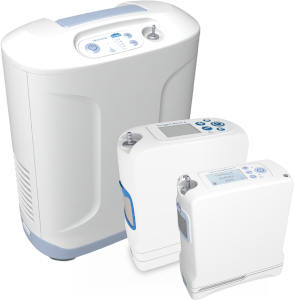- What Is Morning Cough or a Persistent Cough?
A morning cough is a relatively common health issue, and there are numerous potential causes. Coughing is your body’s way of clearing irritants from your respiratory system. While you sleep, phlegm and other irritants can pool in your lungs and throat overnight. When you become active in the morning, the phlegm starts to break up and may trigger a coughing fit. Often, a morning cough isn’t a sign of a serious medical condition. But if it doesn’t go away after a few weeks or if it’s making breathing difficult, it may be time to see a doctor. [1]
A persistent or chronic cough is defined as one that lingers for more than three to eight weeks, sometimes lasting for months or even years. Chronic coughing is common, so frequent that it rates as one of the most common reasons for seeing a doctor. [2]
What causes morning cough?
Many people wonder, “Why do I cough in the morning and should I be worried about it?”
Mucus, also known as phlegm when it’s produced by your respiratory system, lines the tissues of your body (such as your nose, mouth, throat, and lungs), and it helps protect you from infection. [3]
A cough that produces phlegm is known as a wet cough or productive cough. If it doesn’t produce phlegm, it’s called a dry cough or unproductive cough. Knowing which type you have can help you narrow down the cause. [1]
If you have found yourself thinking, “Why do I have phlegm every morning?” and want to find out which causes of persistent cough are affecting you, talk to your doctor. Your cough in the morning could be caused by a number of factors, including illness, exposure to irritants, disease and more. Your doctor will ask about your exposure to smoke, pollution and other lung irritants, and about other symptoms you may be experiencing, to learn more about why you have a morning cough.[1]
What Causes a Buildup of Mucus in the Lungs?
Your body naturally makes mucus every day, and its presence isn’t necessarily a sign of anything unhealthy. Your body makes about a liter of mucus a day. But too much of it, especially somewhere like your lungs, can be annoying and possibly a sign of a health problem. Here are a few situations when you might get mucus in your chest: [1, 2, 3]
- Acid reflux
- Allergies
- Asthma
- Bronchitis (both acute and chronic)
- COPD
- Cystic Fibrosis
- Infections (both bacterial and viral)
- Post-nasal drip
As you can see, some causes of mucus buildup and morning cough are can be resolved, while others are serious and may require medical attention.
When Should I See a Doctor About Mucus Buildup or Persistent Morning Cough?
Waking in the morning with a buildup of mucus along with coughing in the morning, or a persistent cough throughout the day, it is important to look out for any additional symptoms. If your morning cough doesn’t go away after several weeks, you should visit a doctor for a proper diagnosis. You should also see a doctor if you experience: [2, 3]
- Greenish-yellow phlegm
- Wheezing
- Shortness of breath
- Fainting
- Unexplained weight loss
- Ankle swelling
Signs that you should seek emergency medical care include: [2, 3]
- Chest pain when you are not coughing
- Coughing up yellow, green, brown, pink or blood-tinged mucus
- Coughing up blood
- Choking
- Fever, especially if it’s high or prolonged
- Vomiting
- Trouble breathing
- Trouble swallowing
- Night sweats
Is having morning cough a symptom of COPD?
The primary symptoms of COPD are trouble breathing and a wet cough (produces moderate amounts of mucus or sputum). Other symptoms include: wheezing, chest tightness, frequent sickness and fatigue. [3.4] Many people go to their doctor or an urgent care center seeking relief from the chronic coughing associated with COPD. This cough may begin with coughing in the morning, but it often turns into a cough that persists throughout the day. If you have a persistent cough, meaning your cough lasts for at least three months for two years in a row, talk to your doctor about being tested for COPD. [2]
If you have already been diagnosed with COPD and find yourself coughing more than usual, or coughing up sputum that looks different than it normally does, it may be time to go to the doctor to make sure you’re not having a flare-up or an exacerbation. [4]
How to Treat Morning Cough
If you go to the doctor asking “Why do I cough in the morning?” your doctor will ask a variety of questions and do a thorough examination to decide when and how your morning cough should be treated. How much you are coughing in the morning, the type of cough you have, how much it affects your daily life and whether or not you are able to productively clear the mucus are all factors that could affect how and whether your cough is treated.
As annoying as this coughing may be, it actually serves a useful function. Deep coughing clears the mucus that clogs your airways, allowing you to breathe more easily. Some doctors teach their patients how to cough and encourage them to do so often. Other experts even go a step further and advise against doing anything to stop the coughing, as a clear airway means easier breathing in the long run. [4]
If you have a cough in the morning, but are still having trouble clearing the mucus that is blocking your airways, your doctor may prescribe expectorants to help make the mucus easier to cough up, however using a humidifier and drinking lots of water may work just as well. [3] If your cough becomes painful or you are having trouble controlling your coughing, you may be prescribed a cough suppressant to help you rest and recover. If you are experiencing bronchospasms, also called COPD coughing attacks, which cause the muscles surrounding your airways to tighten and constrict your breathing, you may need treatment to relax your airways so you can breathe easier. In that case, a bronchodilator or inhaled steroid may be prescribed to ease your cough in the morning. [4]
If you are in the later stages of COPD and are finding that your persistent cough is no longer a morning cough, but takes place throughout the day, you may find you are struggling to get the oxygen you need. In that case, oxygen therapy may help improve your oxygen intake and saturation. [1]
Inogen Can Help
If you experience COPD coughing attacks and frequently find yourself coughing in the morning, you may need help getting the oxygen you need throughout the day. If so, oxygen therapy may be beneficial. Talk to your doctor about whether a portable oxygen concentrator is right for you and your lifestyle.
Portable oxygen concentrators, like those made by Inogen, are designed for active patients who enjoy travel. Because Inogen’s portable oxygen concentrators are compact and lightweight, so you can manage your need for supplemental oxygen while going about your daily activities. If you need oxygen therapy, talk to your healthcare provider and contact Inogen today to find out which of our Inogen One products may be right for you. A persistent cough does not need to get in the way of your life.
Frequently Asked Questions: Persistent Morning Cough
HOW DO I KNOW IF MY MORNING COUGH IS SERIOUS?
If your morning cough doesn’t go away after several weeks, you should visit a doctor for a proper diagnosis. You should also see a doctor if you experience: [2, 3]
- Greenish-yellow phlegm
- Wheezing
- Shortness of breath
- Fainting
- Unexplained weight loss
- Ankle swelling
Signs that you should seek emergency medical care include: [2, 3]
- Chest pain when you are not coughing
- Coughing up yellow, green, brown, pink or blood-tinged mucus
- Coughing up blood
- Choking
- Fever, especially if it’s high or prolonged
- Vomiting
- Trouble breathing
- Trouble swallowing
- Night sweats
DOES MY MORNING COUGH MEAN I HAVE COPD?
A morning cough on its own does not necessarily indicate COPD. Coughing in the morning can be a symptom of many different conditions, so it is important to pay attention to any other symptoms you may have. The primary symptoms of COPD are trouble breathing and a wet cough (produces moderate amounts of mucus or sputum). Other symptoms include: wheezing, chest tightness, frequent sickness and fatigue. [3.4] Many people go to their doctor or an urgent care center seeking relief from the chronic coughing associated with COPD. This cough may begin with coughing in the morning, but it often turns into a cough that persists throughout the day. If you have a persistent cough, meaning your cough lasts for at least three months for two years in a row, talk to your doctor about being tested for COPD. [3]
If you have already been diagnosed with COPD and find yourself coughing more than usual, or coughing up sputum that looks different than it normally does, it may be time to go to the doctor to make sure you’re not having a flare-up or an exacerbation.
MY MORNING COUGH IS PRODUCTIVE. WHAT DOES THAT MEAN?
A cough that produces phlegm is known as a wet cough or productive cough. If it doesn’t produce phlegm, it’s called a dry cough or unproductive cough. Knowing which type you have can help you narrow down the cause. [1]
A morning cough is a relatively common health issue, and there are numerous potential causes. Coughing is your body’s way of clearing irritants from your respiratory system. While you sleep, phlegm and other irritants can pool in your lungs and throat overnight. When you become active in the morning, the phlegm starts to break up and may trigger a coughing fit. Often, a morning cough isn’t a sign of a serious medical condition. But if it doesn’t go away after a few weeks or if it’s making breathing difficult, it may be time to see a doctor. [1]
WHAT IS THE DIFFERENCE BETWEEN MORNING COUGH AND SMOKER’S COUGH?
People who smoke often develop a cough. This cough is caused by the body clearing out the chemicals that enter the airways and lungs through tobacco use. If the cough is persistent, lasting for more than 3 weeks, it is known as smoker’s cough. While the cough may begin as a dry cough, it can eventually produce phlegm. Other symptoms
Include a sore throat and chest pain. The most effective treatment for smoker’s cough is to quit smoking. Smoker’s cough may be distinguished from other types of cough by symptoms such as phlegm production, crackling sounds in the chest, and wheezing. However, it is difficult to differentiate the cough associated with lung conditions, such as cancer or COPD, from a smoker’s cough. It is a good idea to see your doctor to rule out serious concerns about coughing in the morning, but quitting smoking is also ideal. [5]
WHEN SHOULD I BE CONCERNED ABOUT MY MUCUS OR PHLEGM?
The mucus and phlegm your body produces can tell you about your overall health. The color and amount of mucus and phlegm produced when you cough in the morning, or anytime, can indicate infection or a medical concern. People who have white, yellow, or green mucus that is present for more than a few days, or if they experience other symptoms, such as fever, chills, a cough, or sinus pain, should speak with a doctor. However, a person is usually fine to wait a few days to try and treat the symptoms at home before making an appointment. Someone who develops new or increased red, brown, black, or frothy sputum should call their doctor for an appointment immediately. These symptoms can be signs of a more serious medical condition that requires prompt treatment. [6]
CITED SOURCES
- Yetman, Daniel. “What’s Causing My Morning Coughing Fits?” Healthline, Healthline Media, 2 Dec. 2020, www.healthline.com/health/morning-cough; Morning cough: 8 possible causes and treatments (healthline.com)
- “That Nagging Cough.” Harvard Health, Harvard Health Publishing, Updated 7 Feb. 2019, That Nagging Cough – Harvard Health Publishing – Harvard Health.
- Bhargava, Hansa D. “Mucus in Your Chest: See 8 Different Causes (And How to Remedy It).” WebMD, WebMD LLC, 30 Mar. 2020, Mucus in Your Chest: See 8 Different Causes (And How to Remedy It) (webmd.com)
- COPD and Coughing: Why Your Pulmonologist May Teach You to Cough (healthline.com); https://www.healthline.com/health/copd/coughing
- Smoker’s cough: Symptoms, causes, and home remedies (medicalnewstoday.com)
- Galan, Nicole. “Phlegm: Colors, Textures, and Home Care.” Medical News Today, MediLexicon International, 22 Jan. 2020, www.medicalnewstoday.com/articles/318359#When-to-see-a-doctor.
ADDITIONAL SOURCES
- Shmerling, Robert H. “Don’t Judge Your Mucus by Its Color.” Harvard Health Blog, Harvard University, 23 June 2020, Don’t judge your mucus by its color – Harvard Health
- Miller, Brian Joseph. “What Is a Cough? Symptoms, Causes, Diagnosis, Treatment, and Prevention: Everyday Health.” EverydayHealth.com, Everyday Health, Inc., Updated 4 May 2020, www.everydayhealth.com/cough/guide/.









